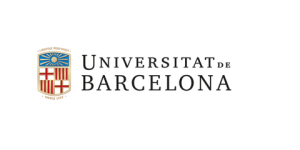FIRST CALL | IASC European Meeting
September 14-17,2011
Hosted by the Agricultural University Plovdiv, Bulgaria
Organised in collaboration with
- Leibniz Center for Tropical Marine Ecology (ZMT), Germany
- Leibniz Institute of Agricultural Development in Central and Eastern Europe (IAMO), Germany
- Bodø University College, Norway
Theme: Shared Resources in a Rapidly Changing World
The regional meeting of the EU branch of the IASC will have as its theme “Shared Resources in a Rapidly Changing World”, reflecting the emphasis on the currently well recognized fact that many if not most resources (e.g. natural resources, social capital, knowledge) require a shared management regime. This is due to complex socio-ecological inter-dependencies, which do not stop neither at national boundaries nor private properties. But a multitude of combined and mixed governance regimes is necessary to manage these resources in an efficient and sustainable way. Accelerated change creates a particular threat to joint management regimes; however, as we are currently in a period of fast change, the conference puts an emphasis on the implication of this fact.
The aim of the European Regional Meeting 2011 is to strengthen the network of European researchers who are investigating those shared management regimes. The conference site, one of the conference themes and the field excursion will highlight in particular the special challenges of (natural) resource management regimes in the post-socialist countries.
Besides the regional focus of Eastern Europe, the conference is open to all European scientists and actors active in the policy domain who work on property regimes and who contribute to discuss new modes of governance for shared resources.
The conference is organized in 4 subthemes:
Multiple Drivers to Change in Common Management
In recent years we experience a rapidly evolving new category of drivers for new modes of governance in shared resources’ management. In comparison to the past, where of course institutional change always took place and was triggered by various determinants, current drivers such as climate change or the perception of groundwater depletion have certain particularities. They require precautionary actions, i.e. ex-ante, anticipatory, planned adaptation strategies in resource governance in order to avoid irreversible damages at a later stage. This theme comprises theoretical but also empirical studies which deal with the development of such drivers, their relationships to other drivers as well as the direct or indirect impact of these drivers on the management of the shared resources.
Post Socialist Commons: the Road Ahead
This theme examines the actual shifts in the management of shared resources in Central and South-Eastern European Countries and the Western Balkans, including the new member states: those which recently entered the European Union in 2007, those which started negotiations, and those not yet formally affiliated to the EU. The socialist legacy and experience of two decades of transition phase led to specific requirements for coordination mechanisms, particularly self-governance management solutions.
Methods Investigating Complex Common Property Regimes
This theme focuses on new methodological developments for investigating shared resource systems in a rapidly changing world. Methods range from laboratory experiments to field experiments. Apart from rational maximizing behavior, people follow rules of thump, behave reciprocal or altruistic or follow any other behavioral rule. This behavioral diversity can e.g. be captured by agent based modeling. Thus, for understanding common property regimes and for performing institutional analysis, we need to move far beyond either classical case study or large n-study research, and methodological diversity will lead to the best understanding.
Multi-level Governance
Particularly looking at shared resources and the management of such socio-ecological systems, often a multiplicity of governance levels is required for regulating a resource. Therefore this conference wants to deal explicitly with this inherent complexity. This complexity on various levels leads to a so far unknown multiplicity of drivers of change in commons´ management. The European post-socialist countries are particularly interesting examples to study multi-level governance due to their necessary institutionalizations on various levels. In that respect, the theme will also analyze how far the polycentricity concept is applied already in European shared resource management. In a polycentric system, each unit exercises considerable independence to make and enforce rules within a circumscribed domain of authority for a specified geographical area.
We welcome proposals for organised sessions and individual papers relating to the four subthemes of the conference.
Organized Sessions
Submit a proposal to organize a 1.5 hour concurrent panel session (3-4 speakers and session chair). Proposals include an abstract of the goal and topic of the session (maximum of 400 words), include names and affiliations of the organizer and individual presenters, and provide abstracts for the individual papers (maximum 400 words). Proposals for organized sessions are due February 18, 2011.
Individual Papers
Submit an abstract to give a 20-minute oral presentation. Abstracts should be a maximum of 400 words. Include the name, title and affiliation of each author. Abstracts will be peer reviewed and are due February 18, 2011. Confirmation of acceptance of the abstract as paper or poster presentation will be sent by April 15, 2011. Full papers are due July 15, 2011.
Conference Proceedings
All submitted papers will be made available online and provided to the International Library of the Commons. All conference paper submissions will be peer reviewed by the Scientific Advisory Board, and a selection of the papers will be considered for a special issue of the International Journal of the Commons.
Submission of abstracts
All abstracts must be submitted electronically via the conference website:


